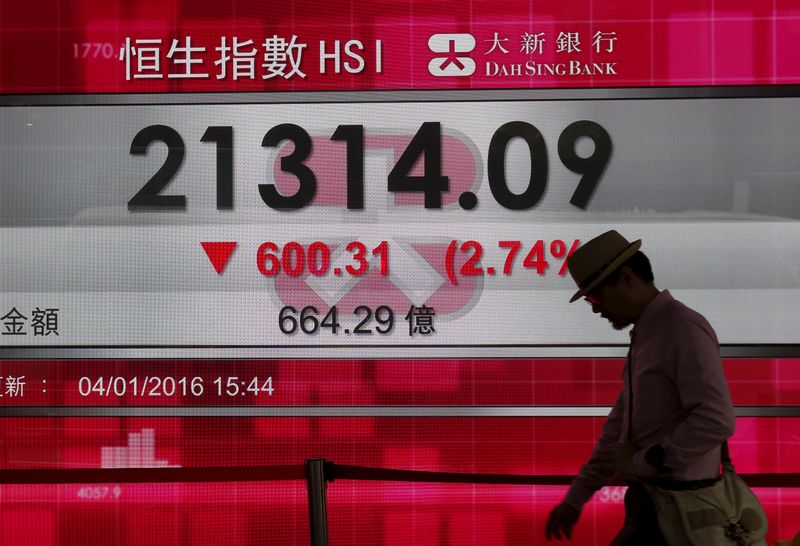This post was originally published on this site
https://i-invdn-com.investing.com/news/LYNXMPEC030H2_M.jpg
Investing.com — Asian stocks were a mixed bag on Thursday as markets weighed a potential Chinese economic recovery against concerns over rising inflation and interest rates in the rest of the globe.
China’s Shanghai Shenzhen CSI 300 and Shanghai Composite indexes kept to a tight range, with gains now cooling after a two-day rally. Data on Wednesday showed that business activity in the country expanded at its sharpest pace in over a decade after the lifting of most anti-COVID restrictions.
Focus is now on an upcoming meeting of top-level Chinese officials this week, which could result in more policy changes in Asia’s largest economy.
Other China-exposed indexes saw some profit taking after a strong rally on Wednesday. Hong Kong’s Hang Seng index sank 0.8% after surging over 3% in the prior session, while the Taiwan Weighted index was flat.
Hong Kong shares of property giant China Vanke Co Ltd (HK:2202) slipped nearly 4% after the firm said it raised nearly $500 million in a share sale.
An overnight spike in U.S. Treasury yields pressured most Asian markets, as an unexpected rise in manufacturing prices through February saw traders pricing in a greater possibility of stubborn inflation keeping U.S. interest rates higher for longer.
Hotter-than-expected German inflation data also heralded a similar reading from euro zone inflation due later on Thursday, which could invite more hawkish moves from the European Central Bank.
The prospect of rising interest rates bodes poorly for Asian stocks, given that they limit foreign capital flows to the region. Regional central banks also hike interest rates to keep up with the Federal Reserve, which keeps liquidity muted.
Weak economic readings also weighed on regional sentiment. South Korean industrial production slumped more than expected in January, while retail sales sank 2.1% as the country grapples with high inflation and rising interest rates.
But South Korea’s KOSPI index surged 0.8% in catch-up trade, after a holiday on Wednesday.
Japan’s Nikkei 225 index was flat as capital spending rose in the fourth quarter, even as business profits declined. Japanese household confidence was also weaker than expected in February, pointing to a potential decline in retail spending.
Australia’s ASX 200 was flat as gains in major mining stocks were largely offset by weak bank stocks. Australian building approvals plummeted far more than expected in January, as rising mortgage rates kept home buyers at bay.
India’s Nifty 50 and BSE Sensex 30 indexes sank 0.5% each ahead of a reading on local service sector activity due Friday.

